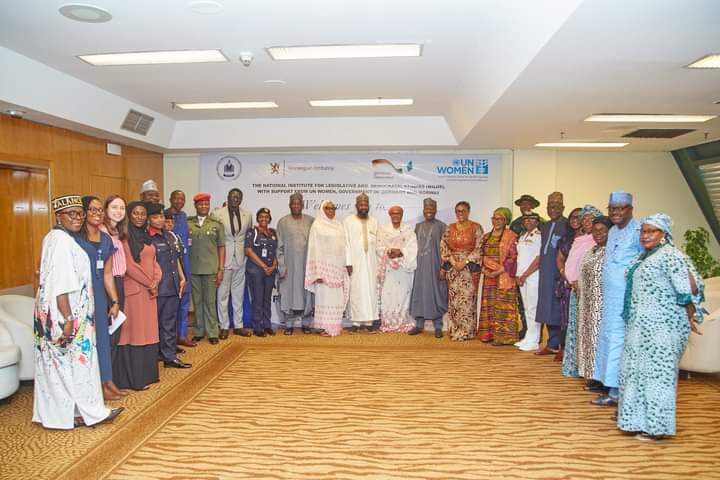Introduction
Gender inequality is a critical issue that affects millions of youths in African countries. Though young people represent Africa’s hope for a prosperous future, traditional values, economic challenges, and social structures still limit equal opportunities for men and women. This disparity isn’t just a matter of fairness—it impacts economic growth, social cohesion, and the overall quality of life across generations. This article dives into the complexities of gender inequality among Africa’s youth, exploring its causes, effects, and potential solutions. Why is it so hard to bridge this gap? And what can be done to create a more inclusive society? Let’s find out.
Understanding Gender Inequality in Africa

Gender inequality refers to the unequal treatment of individuals based on their gender, limiting their opportunities, rights, and freedoms. In African countries, this issue is deeply rooted in cultural, religious, and economic structures. For young Africans, this inequality impacts access to education, employment, and even basic human rights.
The Role of Traditional Values

Traditional values play a significant role in shaping gender roles across Africa. These values often prescribe distinct roles for men and women, limiting their personal choices. For instance, many young women are expected to focus on domestic responsibilities, while men are encouraged to pursue education and careers. Although some societies are evolving, these deep-rooted beliefs still hinder gender equality.
Read Also How to Make Money on Facebook: Your Ultimate Guide
Education Disparities Between Genders

Education is often viewed as a gateway to opportunity, but in many African countries, young women face greater obstacles than men in accessing quality education. Gender norms, early marriages, and economic barriers prevent girls from completing their schooling. According to UNICEF, African girls are more likely than boys to drop out of school, which hinders their personal development and job prospects.
Read Royal Regalia: A Timeless Tapestry of Power and Elegance
The Economic Implications of Gender Inequality

Gender inequality doesn’t just affect individuals—it impacts the entire economy. When half the population is unable to contribute fully due to discrimination, it slows down national growth. Young women often find themselves confined to low-paying jobs with limited upward mobility, which widens the income gap between genders. Addressing this imbalance could lead to a more vibrant and inclusive economy.
The Influence of Early Marriages on Young Women
In some African cultures, girls are married off at a young age, often to men much older than them. Early marriages not only disrupt education but also expose young women to early pregnancies and health risks. This practice perpetuates a cycle of poverty, as these young women have limited opportunities to escape their circumstances or pursue economic independence.
Limited Access to Healthcare for Young Women
Healthcare access is essential for young people, especially young women who face unique health risks. However, in many African countries, reproductive health services are either unavailable or difficult for young women to access. Lack of healthcare not only jeopardizes their physical well-being but also affects their ability to participate actively in society and pursue education or career goals.
The Role of Gender Stereotypes in Employment
Gender stereotypes continue to dictate the types of jobs men and women are “expected” to take up. While men are encouraged to pursue careers in engineering, technology, and business, young women are often directed toward nursing, teaching, or caregiving roles. This limits their potential and perpetuates wage gaps, as traditionally “female” roles are often lower-paying.
The Impact of Unemployment on Gender Inequality
Africa faces high youth unemployment rates, but women are disproportionately affected. When job opportunities are scarce, men are often prioritized, leaving young women to struggle with economic dependency. This situation reinforces traditional roles and keeps women in cycles of poverty and dependence, widening the gender gap further.
Gender-Based Violence and its Effects on Youth

Gender-based violence is an alarming issue affecting both young men and women, though women are often more vulnerable. From harassment in schools to domestic abuse, violence against young women has physical, psychological, and emotional consequences. It discourages girls from pursuing education and limits their personal and professional growth.
The Digital Divide and Gender Inequality
Access to technology and the internet is becoming essential for education and employment. However, in many African countries, young men have greater access to digital tools than women. This digital divide limits young women’s opportunities to learn, work, and connect with the global community, further perpetuating gender inequality.
Gender Inequality in Political Representation

In most African countries, young women are underrepresented in politics and decision-making bodies. This lack of representation means that policies often fail to address the specific needs of young women, making it difficult to implement meaningful change. Political empowerment is essential for achieving gender equality and ensuring that all voices are heard.
Social Media’s Role in Gender Advocacy
Despite the challenges, social media has emerged as a powerful tool for gender equality advocacy among African youth. Young activists are using platforms like Twitter, Instagram, and TikTok to raise awareness, challenge stereotypes, and demand policy changes. By amplifying their voices, social media allows young Africans to connect with global movements and push for progress.
Read Also How to Dress for Your Body Shape: Flattering Styles for Everyone
Grassroots Organizations and Local Initiatives
Several grassroots organizations in Africa are actively working to bridge the gender gap by providing education, vocational training, and health services to young women. These initiatives are helping change mindsets and providing young women with the tools they need to succeed. Organizations like these are essential for creating sustainable change from the ground up.
Government Policies and Gender Equality Initiatives
Governments across Africa have started recognizing the importance of gender equality. Policies focusing on education, healthcare, and economic empowerment are slowly taking shape. However, challenges remain in enforcing these policies and addressing the deep-seated cultural norms that hinder progress.
A Call to Action: What Can Be Done?
To achieve gender equality among African youth, a multi-faceted approach is necessary. Efforts should focus on reforming educational systems, increasing access to healthcare, promoting economic empowerment, and challenging cultural norms. It’s also essential to involve young men in this fight for equality, as they play a key role in shaping a more inclusive society.
Conclusion
Gender inequality among African youth is a complex issue, deeply influenced by cultural, economic, and social factors. The impact of this inequality is felt across society, affecting everything from economic growth to social stability. However, there is hope. With the support of grassroots organizations, governments, and young activists, Africa has the potential to become a more inclusive and equitable continent. Empowering both young men and women is essential not only for individuals but for the continent’s future as a whole. The journey to gender equality may be challenging, but it’s a journey worth taking for a brighter, more prosperous Africa.
FAQs
1. Why is gender inequality so prevalent among African youth?
Gender inequality among African youth stems from a combination of cultural traditions, economic disparities, and limited access to education and healthcare for young women. These factors reinforce traditional gender roles, making it difficult to break the cycle.
2. How does gender inequality affect economic growth in African countries?
When young women are denied opportunities due to gender bias, it limits the overall talent pool and reduces productivity. By addressing gender inequality, African countries could benefit from a more robust and inclusive economy.
3. What is the role of social media in promoting gender equality?
Social media has become a platform for young Africans to raise awareness about gender inequality. Activists use it to connect with global movements, challenge stereotypes, and encourage policy changes that promote gender equality.
4. Are African governments doing enough to address gender inequality?
While some African governments have made strides in promoting gender equality through policies on education and healthcare, enforcement remains a challenge. Cultural norms and lack of resources often hinder the effective implementation of these policies.
5. How can young men contribute to gender equality?
Young men play a vital role in challenging stereotypes and supporting gender equality initiatives. By understanding the issues and advocating for equality, they can help create a more inclusive society for all genders.


